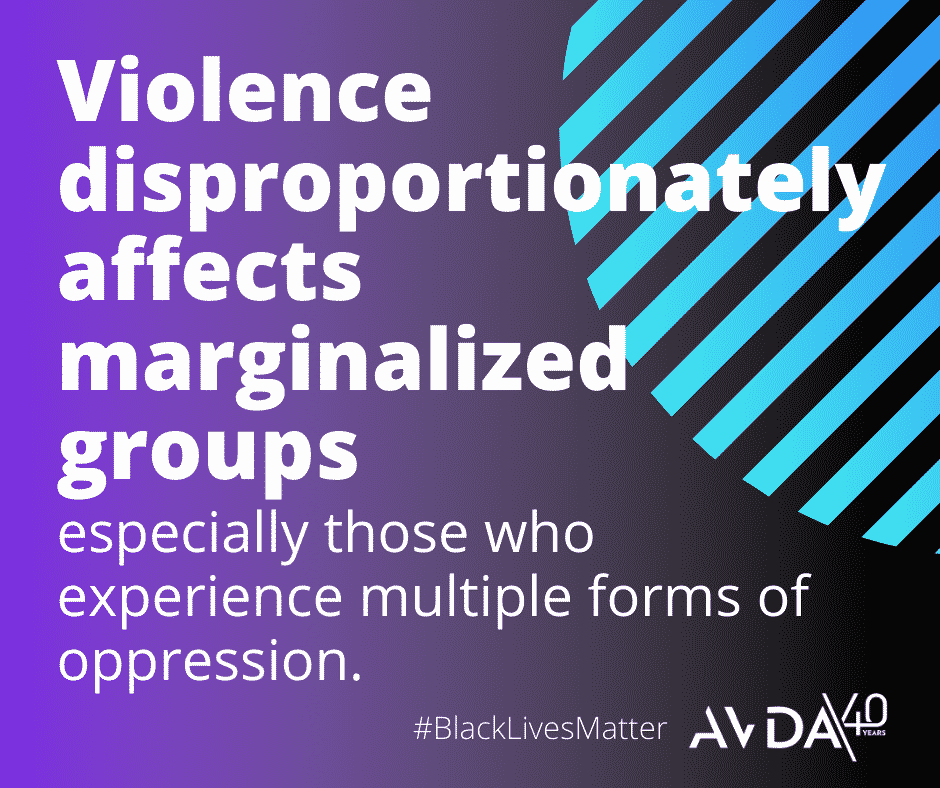The second blog post of a series on evoking change.
 As part of the anti-violence movement, AVDA stands at a monumental crossroads at a historic moment in time, and we recognize the role we can play in racial justice. We are inspired to assess and understand how systemic racism relates to our work in the anti-violence movement and do all that we can to help eradicate the harm it has on those we serve.
As part of the anti-violence movement, AVDA stands at a monumental crossroads at a historic moment in time, and we recognize the role we can play in racial justice. We are inspired to assess and understand how systemic racism relates to our work in the anti-violence movement and do all that we can to help eradicate the harm it has on those we serve.
As we address how domestic violence is tied to all oppressive systems, we must acknowledge that violence disproportionately affects marginalized groups, especially those who experience multiple forms of oppression. Women of color experience domestic violence at high rates and continue to encounter barriers when trying to access supportive services.
According to the Bureau of Justice Statistics, African American females experience intimate partner violence at a rate 35% higher than that of white females, and about 2.5 times the rate of women of other races. According to the CDC’s National Intimate Partner and Sexual Violence Survey, 23.4% Hispanic/Latino females are victimized by intimate partner violence (IPV) in a lifetime, defined by rape, physical assault or stalking. Project AWARE’s (Asian Women Advocating Respect and Empowerment) 2000-2001 survey of 178 API women found that 81.1% reported experiencing at least one form of intimate partner violence in the past year.
For women of color, high rates of poverty, poor education, limited job resources, language barriers and fear of deportation increase their difficulty in finding help and support services. For African-American women specifically, the following considerations may account for under-reporting of domestic violence and a failure to seek appropriate help:
-
- A strong personal identification based on familial structure/hierarchy, patriarchal elements, and cultural identity (e.g. role as wife, mother, and homemaker)
- A strong loyalty to both immediate and extended family as well as loyalty to race and culture; individual needs often defer to family unity and strength alongside a reluctance to discuss “private matters”
- Fear of rejection from family, friends, congregation, and community; a fear of isolation and alienation
- Religious beliefs that reinforce the woman’s victimization and legitimizes the abuser’s behavior
- Distrust of law enforcement (fear of subjecting themselves and loved ones to a criminal and civil justice system seen as sexist, and/or racially and culturally biased)
Knowing these obstacles for African-American victims of domestic violence in getting the help they deserve, how is AVDA answering the call to promote racial justice? Our next blog post in this series will address this issue.
These articles informed this blog post:
https://vawnet.org/news/why-it-important-bring-racial-justice-framework-our-efforts-end-domestic-violence
https://www.doj.state.or.us/wp-content/uploads/2017/08/women_of_color_network_facts_domestic_violence_2006.pdf
